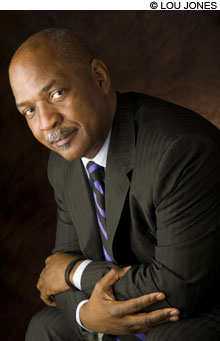Three nights before Christmas, hundreds of concerned citizens crammed into the St. James African Orthodox Church in Roxbury to address what one civil-rights activist calls "the most stunningly racist piece of legislation" to hit Massachusetts in decades. The group was gathered to seethe about a pending statewide "three strikes" law, which would imprison certain classifications of repeat offenders — violent and non-violent — for extremely long sentences, including life without parole. Among those who came to inform folks about the bill was Harvard University School of Law professor Charles Ogletree, who cranked the volume in his turn."You should be fired up," he said. "We've never seen our system so insane, horrendous, backward, and unjust."
Indeed, "three strikes" has been a proven failure. These measures are often passed by reactionary politicians looking to appear tough on crime. But in case study after case study, in state after state, these policies have had little deterrent effect, leading instead to swollen prisons, bureaucratic nightmares, and, in the case of California, straight-up financial ruin.
"Three strikes" bills have also struck minority communities disproportionately hard. A 2004 study by the nonprofit and nonpartisan Justice Policy Institute found that Latino and African Americans were imprisoned under California's three-strikes law at rates far higher than whites. Furthermore, this type of punitive legislation has also come under fire from a broad range of critics for its financial impact; last year the conservative-leaning United States Supreme Court even acknowledged the devastating effect of California's "three strikes" law, ordering the state to free 34,000 inmates from its overcrowded prisons.
The measure currently sits in committee limbo after passing both the State House of Representatives and State Senate, and is expected to arrive on Governor Deval Patrick's desk sometime soon.
"This is an attack on the 'hood, plain and simple," says community activist Jamarhl Crawford, who will co-host a follow-up "three strikes" forum — along with representatives from groups including the NAACP and the Center for Church and Prison — this Saturday at the Dudley Square library. Among other things, they're worried that the bill could hand out life sentences for crimes like illegal gun possession and breaking and entering— charges that, activists say, are often maliciously applied in minority communities. Crawford continues: "Now that activists are really looking at the bill, we're all convinced that it's overreaching to the point that it's even more fucked up than California's law that pushed them toward bankruptcy."

CHARLES OGLETREE The Harvard Law professor calls the proposed "three-strikes" law "insane, horrendous, backward, and unjust." |
Of the local legal experts and activists who are rallying against "three strikes," none expected such a law to be enacted here. The commonwealth, for all its flaws and blue laws, is renowned for setting progressive precedents on such issues as gay marriage and CORI reform. Furthermore, the Massachusetts Department of Correction is already brimming with non-violent offenders, and operating at more than 40 percent over-capacity. A widely targeted "three strikes" law like the one proposed would only augment that problem, adding what opponents of the bill claim could be an annual cost of up to $100 million."This is horrible," says Lyn Levy, executive director of the highly successful Boston-based ex-offender advocacy group Span, Inc. "The way that it was done was ignorant beyond reproach — there was little research into any of the longer-term ramifications. . . . It's as racist a piece of legislation as I've ever seen in this state. I can't believe that it's actually happening."